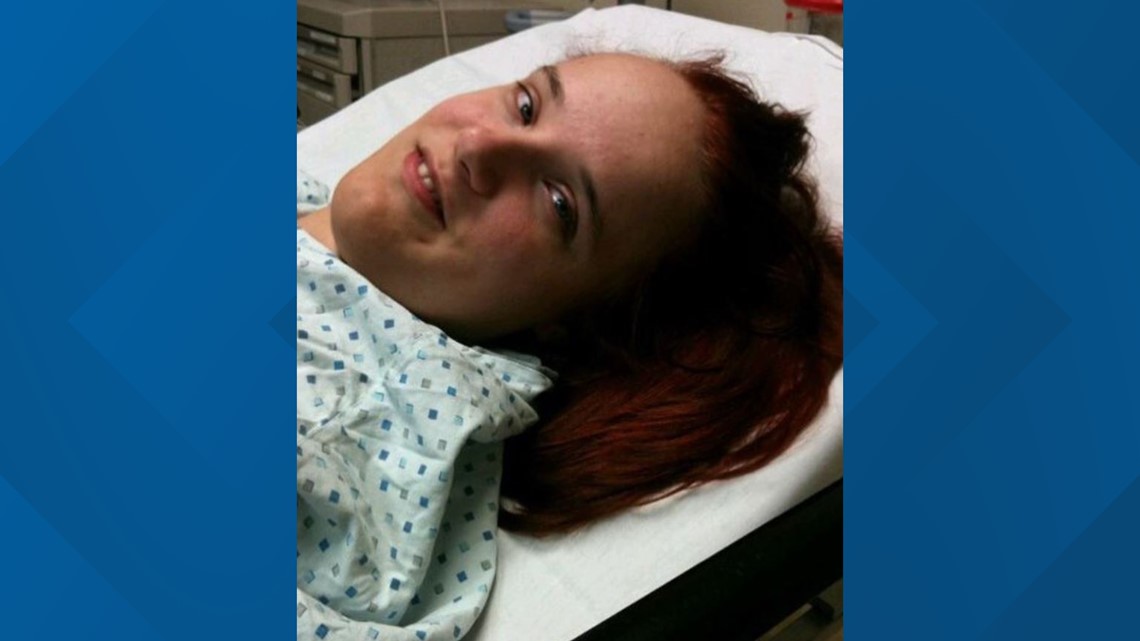ATLANTA — For Jessica Jewett, the COVID-19 pandemic has been more than just a debate between getting vaccinated - which she is - or wearing a mask - which she does. For her, getting the virus is more of a life-or-death situation.
That's why since the start of the pandemic, she's been spending her time either at home or in a hospital.
"It's very scary," she said. "I'm afraid of COVID, naturally, because I'm a quadriplegic and I have a broken immune system, so if I get COVID, I'm not likely to recover in the first place."
The 39-year-old has been in and out of the hospital at least four times since the start of the pandemic. As a quadriplegic, she's gotten more than 20 surgeries throughout her lifetime.
"It's so much worse from November to now. If I get sick, I won't recover from COVID. I will be a statistic. It was very scary being there for emergency surgeries when there are so many sick people around me," she added.


There are times Jewett can have medical complications that require immediate attention.
However, the rise in COVID-19 hospital patients is making immediate care harder.
Right now, 97% of all ICU beds in Georgia are in use.
On Tuesday, the state hit a record number of patients currently in the hospital with the virus. According to the Georgia Department of Public Health, hospitals have 6,032 COVID patients right now, which is 36% of all patients statewide.
For perspective, the CDC says anything above 20% is a serious strain on medical resources.
"When your surgery is a life or death thing, you can't afford for delays to happen so I wasn't even there with COVID but COVID was affecting what was happening to me," she said.
She last went to the hospital in late July for an emergency surgery. She had benign tumors, one which had twisted. In addition, her tissues inside were dying, and she says when that happens you can quickly die of sepsis.
"I was in the ER for probably eight hours on a hallway bed. There was no bed available. The EMS took me to the ER - they were telling me in the ambulance that people in Georgia have been waiting up to seven hours for EMS at times because there's just not enough people to go around," she added.
"We're going to stretch [healthcare workers] so thin that we're not going to have good quality nurses and doctors anymore because they're going to get so burned out. They're literally dying trying to save us," Jewett said.
The Northeast Georgia Medical Center says all its hospitals have been full for weeks, so it’s adding beds to meet the current high demand. In turn, waits are longer, patients are being treated in hallways and also ambulances.
“I’m afraid that one day there won’t be a bed for me. I was getting shuffled from floor to floor in my recovery because there were not enough beds to go around – they were just putting people where they could," she added.
Even without beds, you’ll be seen, according to Piedmont Healthcare.
A spokesperson explains hospitals follow a federal law known as The Emergency Medical Treatment and Labor Act, which prohibits hospitals with emergency departments from refusing to examine or treat individuals with an emergency medical condition.
The law states if necessary, a patient can be transferred to another medical facility.
"It's hard when you need something, and you push the call button, especially if you have to use the bathroom and you have to wait about a half an hour to get anybody to come to you. And sometimes they don't come because there's just nobody available," Jewett added.
To control the influx of patients, hospital systems are asking that if you're looking for a COVID-19 test or you have mild symptoms, you head to an urgent care facility or your primary care doctor.
"If this doesn't change anytime soon, we're gonna end up killing a lot more people that don't need to die. This is totally preventable. People don't need to die," Jewett said, stressing the need for more Georgians to get the vaccine.
For a breakdown provided by Northeast Georgia Medical Center, on where you should go for symptoms you might have, click here.

